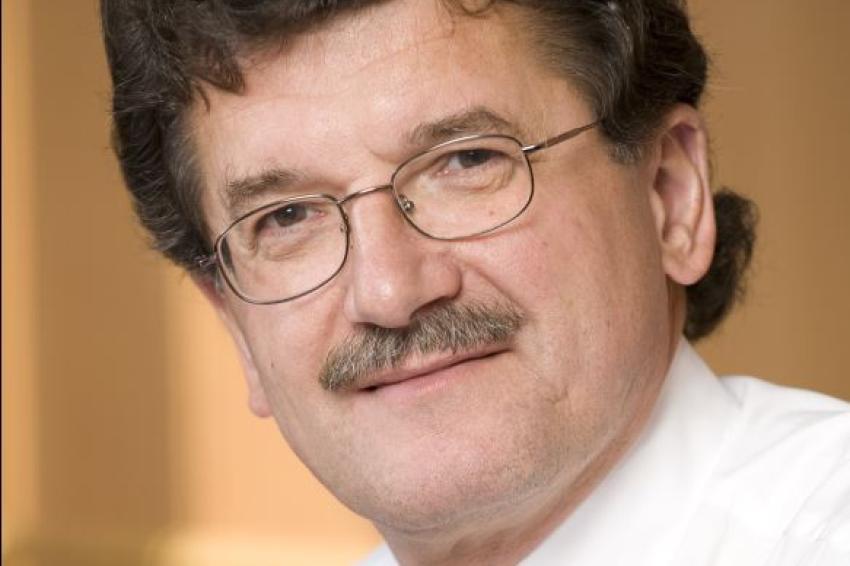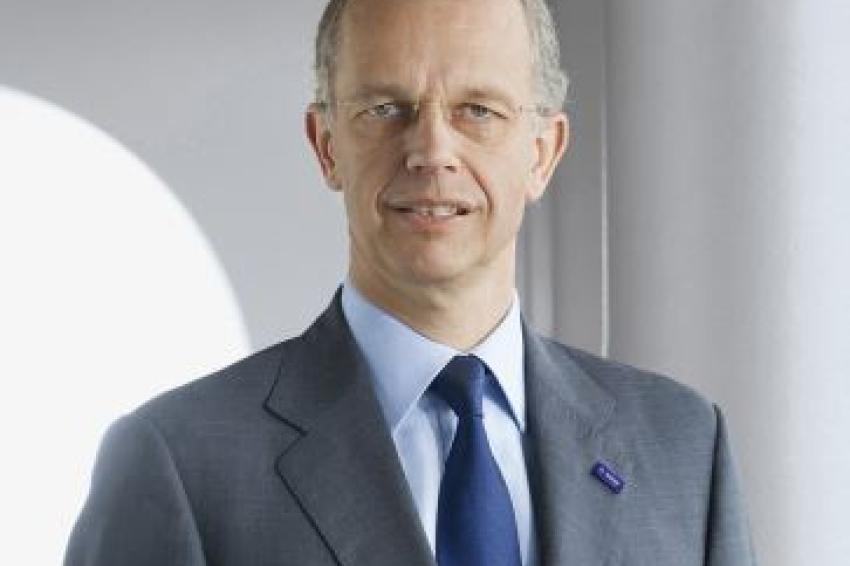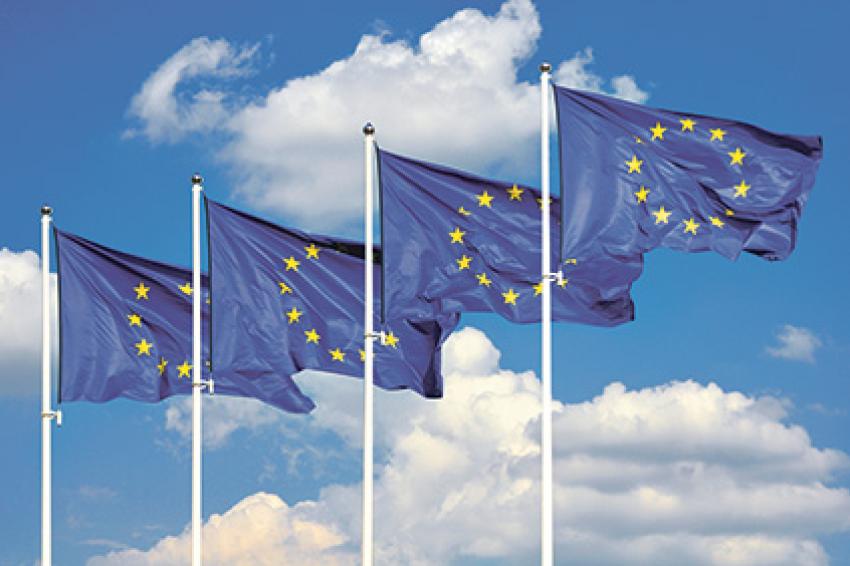European Chemical Industry: Hope Amid Economic Woes
CEFIC Looks for a Boost from Industry’s Reputation for Innovation
The European chemical industry has reduced its forecast growth in chemicals output in 2014 in the face of evidence of an economic slowdown both in Europe and in the world's fast expanding markets such as China and Brazil.
Nonetheless, the leaders of the industry at the annual general assembly of the European Chemical Industry Council (CEFIC) in Paris in mid-October expressed cautious optimism about the outlook for next year in the expectation that the current negative economic indicators would show themselves to be merely short-term trends.
Building A Reputation
Also they hope that the improved public image of the industry - as demonstrated by an opinion survey revealed at the conference - will strengthen the position of the sector in crucial negotiations with the European Union on energy costs linked to climate change measures.
The survey, which covered the public across Europe and policymakers and "influencers" in Brussels, revealed that the industry is being rated more highly than previously for its energy efficiency and its ability to help customer sectors reduce energy consumption.
Also the industry is gaining a stronger reputation for its innovative prowess, which is enabling downstream producers to perform more effectively.
"This (survey) is a good basis to cooperate with the new European Commission and the new European Parliament and provide any support needed to reach the target of more growth and more jobs," said Kurt Bock, BASF chairman and CEFIC's immediate past president.
Competing Amid Climate Change
CEFIC is hoping that the commission will back a new deal on the use of carbon allowances under the EU Emissions Trading Scheme (ETS). This will enable energy-intensive chemical producers to offset the effects of EU climate change measures, which could undermine even further the international competitiveness of the sector.
A week after the general assembly, EU leaders at a summit in Brussels agreed to cut greenhouse gas emissions by 40% by 2030 compared with 1990 levels. The industry has been pressing for a target that would align the EU more closely with the less ambitious emissions targets of the rest of the world.
"Europe represents 12%-13% of global greenhouse emissions," said Jean-Pierre Clamadieu, Solvay's chief executive and CEFIC's new president. "It is not going to save the world by itself."
Lowered Expectations
Meanwhile, CEFIC highlighted the more immediate economic pressures it is confronting when it announced it was downgrading its forecast output growth for 2014 from 2% to 1.5%.
The new figure is the same as that in its outlook for 2014 issued late last year. It was raised to 2% in June because the industry's performance was better than expected in the first half of the year.
"The order books of Europe's chemical producers have not been looking so good, and confidence indicators have been going down," said Hubert Mandery, CEFIC's director general, at the general assembly. "Output of specialty and consumer product chemicals has been relatively strong, but there has been a big drop in petrochemicals production - by around 6%-7%.
"Also the trade surplus in chemicals outside the EU has gone down by €1.9 billion during the first six months of the year," he said. "This is equivalent to around 10% of the total. If it continues on that scale for the rest of the year, it will be a remarkable decline."
The downturn in Germany is seen as a setback because of its position both in the European chemicals market and in the EU economy. "German officials have reduced expected GDP growth in Germany in 2014-15 to 1%, which is like no growth," Bock said at the conference. "If we're satisfied with 1%, we have big problems going forward."
Looking Up
Nonetheless, CEFIC is still sticking to predictions made earlier this year of a 1.5% increase in chemicals output in Europe in 2015.
"The two main positive factors next year are likely to be beneficial currency trends and political developments in Eastern Europe," Mandery said. "Relations between Russia and Ukraine seem to be going in the right way so that economic conditions there will get back to normal."
Also other factors that could lead to a further weakening of the global economy, such as the fall in oil prices and a slowdown in growth in the emerging economies, are seen as likely to be short-term phenomena.
"I'm not sure that these two trends of falling oil prices and softening emerging economies are long-term," Clamadieu said. "At the moment they are short-term challenges. We can't adjust our long-term strategies on the basis of the latest economic reports."
Threat Of Shale
CEFIC is, however, taking seriously the effects of the US shale-gas boom, which CEFIC regards as a major threat to the competitiveness of the European chemical industry because of the way it is lowering energy and feedstock costs for US petrochemicals and other chemicals producers.
Even if Europe produced shale gas, its benefits would not be big enough to deal with the region's big difficulties with energy supplies.
"It would take a long time to have an impact," Clamadieu said. "The economic and geological conditions are different in Europe from those in the US It would not be a silver bullet. If the question is, will it solve the European energy situation, the answer is no."
Eye On Energy Policy
For CEFIC, one of its most important priorities is easing the burden of high energy costs in Europe. In particular, it wants to prevent EU climate change measures pushing up costs even further.
"Energy policy in the EU is a key issue for European competitiveness as is seen in the price differences, particularly in gas and electricity, compared with non-European competitors," Bock said. "If we continue in the present way with the decarbonization of Europe, the end result will be the further deindustrialization of Europe."
Europe needs to have a single energy policy rather than the current arrangement under which member states are allowed to pursue their own national energy strategies. Energy supplies also need to be more unified across Europe, according to CEFIC.
Much will depend on the outcome of a review of the ETS with its market for carbon emission allowances. The review, which will take place over the next few years to establish a new ETS for the next decade, should provide a means for alleviating the energy difficulties of industry through the official allocation of allowances.
"We believe that the ETS works because it can help achieve lower CO2 emissions at the lowest possible costs," Bock said. "It is an example of the liberation of market forces to achieve the best possible solution."
CEFIC hopes there will be a more coherent approach by the EU to the ETS as a result of the decision by the new European Commission President Jean-Claude Juncker to make energy and climate change the responsibility of a single commissioner rather than separate commissioners.
"Energy and climate change are the two sides of the same coin," Clamadieu said. "Having one commissioner in charge of both is a positive step."
Image Of Innovation
The outcome of the ETS review could be influenced by the perception among both the EU public and its politicians of the strategic importance of the chemical industry to the European economy.
Its reputation has been boosted by the results of the opinion survey, which covered 8,000 of the "informed" and the general public in 12 EU countries and 350 policymakers, influencers and informed public in Brussels. Around 10% of the total were categorized as informed on the basis of their awareness of the industry and the issues confronting it.
Compared to a similar survey in 2012, the industry's reputation index scores have risen by around 5% across the EU, with the U.K. gaining the top marks of 66 out of 100, closely followed by Finland and Hungary.
"Amongst the general population, the benefits of the industry are seen as outweighing the risks," Graham van't Hoff, head of Shell Chemicals and a member of CEFIC's executive committee, told a press briefing on the survey. "Energy efficiency remains the industry's top reputation strength. It has been a key part of the industry's communications message over the last two years. Also the industry's innovation rates well in the EU and is a strong driver in Brussels."
The industry is seen as having an enabling role for its customer industries in terms of their product qualities, technologies and innovations. These include pharmaceuticals, biotechnology, medical devices, perfumes and cosmetics, nanotechnology, and the car industry.
The results of the survey give the European chemical industry a better reputation than its counterparts in North America and the Asia Pacific, according to APCO Insight, Brussels, which conducted the European survey and does similar studies in the other two regions.
"The European industry has a more positive image in particular as an enabler," said Bryan Dumont, APCO's Brussels-based president. "The role of being an enabler of innovation is becoming more important as a way of assessing an industry from a broader perspective."
Despite disadvantages such as high energy costs and weakening competitiveness, Europe's chemical industry is at least top of the world in terms of reputation among its own population.











